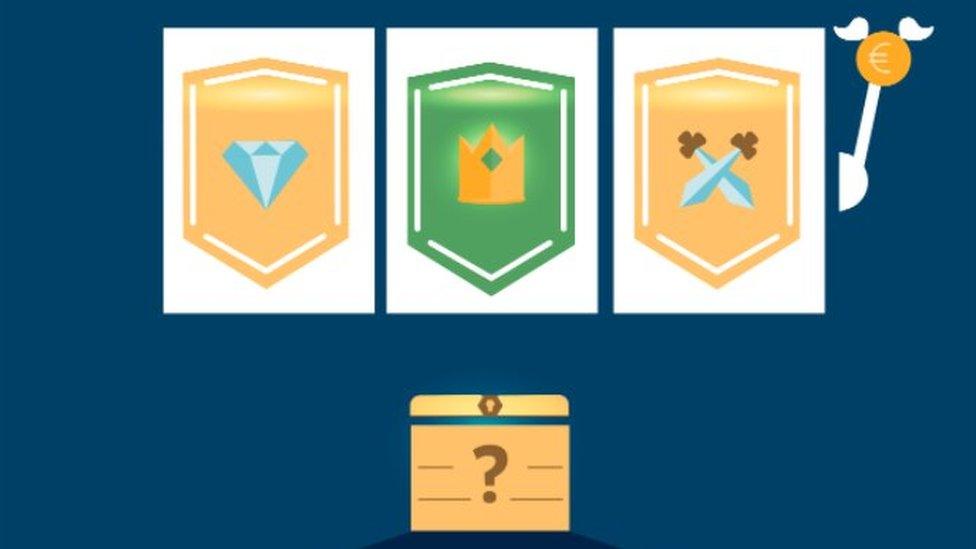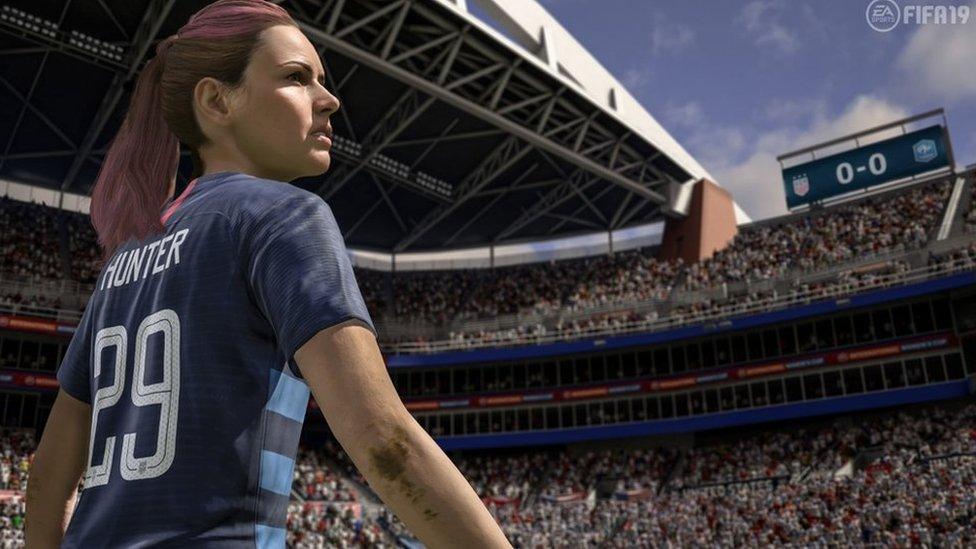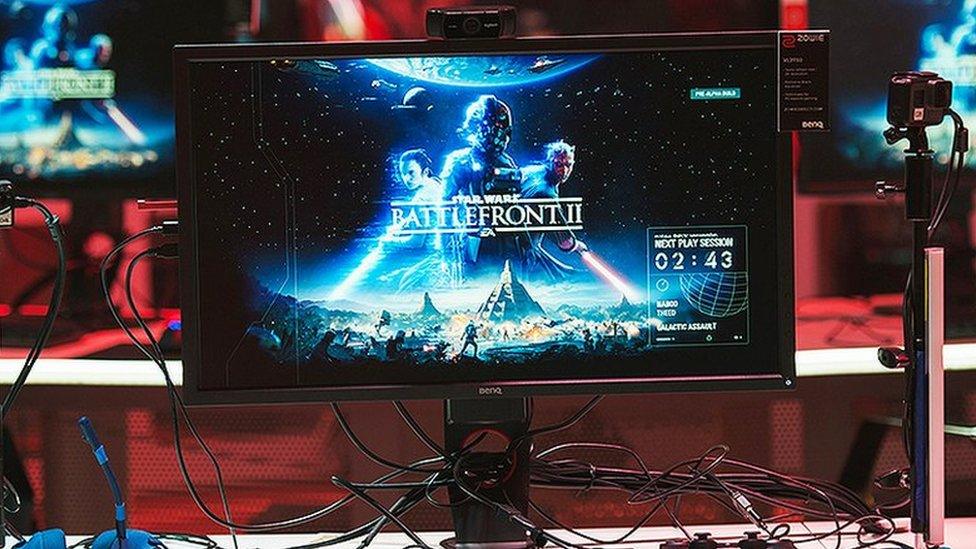Report blasts "manipulative" video game loot boxes
- Published

Consumer groups in 18 European countries have backed a report calling gaming loot boxes "exploitative."
The contents of the virtual boxes are only revealed through either game play or by making a payment.
While some contain useful tools or desirable extras which improve the experience, others are worthless.
The report authors, the Norwegian Consumer Council (NCC), say gamers are being "manipulated" into spending large sums of money on the chests.
Games publisher EA has previously compared loot boxes to children's toys Hatchimals or Kinder Surprise.
Critics say the boxes are a form of gambling because players cannot see what they have actually bought until after they have paid to open the contents.
Finn Myrstad, director of digital policy at the NCC, said: "The sale and presentation of loot boxes often involve exploiting consumers through predatory mechanisms, fostering addiction, targeting vulnerable consumer groups and more."
The report is backed by 20 consumer groups in the 18 countries, which are all calling for governments to take action through regulation.
This includes the European Consumer Organisation, which represents consumers in Europe - including those in the UK.
The report says it "appears obvious" that the systems used to convince people to part with their money in games are "predatory, manipulative, and exceedingly aggressive".
It adds that these problems are exacerbated by the fact that some of the games containing loot boxes are targeted at children.
Banned in Belgium
There is a debate around whether loot boxes constitute gambling.
In 2018, the Belgium Gaming Commission ruled they were in violation of gambling legislation, which led to popular series Fifa dropping its virtual currency in the region. That effectively means loot boxes can only be earned by playing the game's Ultimate Team mode.
Netherlands then came to the same conclusion in 2019, hitting Fifa's publisher EA with a €10m (£8.5m) fine.
The decision was overturned in March 2022, when a court found that EA had not broken the law and rescinded the fine.
It said loot boxes in Fifa - which contain digital versions of actual football players who can then play for Fifa gamers' teams - add an element of chance to the Ultimate Team mode, but that they only form part of a broader game of skill.
In 2019 a vice president of EA games defended the company's use of loot boxes, telling MPs they were just the same as Kinder Eggs.
Kerry Hopkins said: "We do think the way that we have implemented these kinds of mechanics - and Fifa of course is our big one, our Fifa Ultimate Team and our packs - is actually quite ethical and quite fun, quite enjoyable to people."
But the same year Fortnite-maker, Epic Games, decided to let players in its hit video game see what was inside its llama loot boxes before deciding whether to buy them.
Related topics
- Published2 April 2021

- Published9 July 2019

- Published20 June 2019
